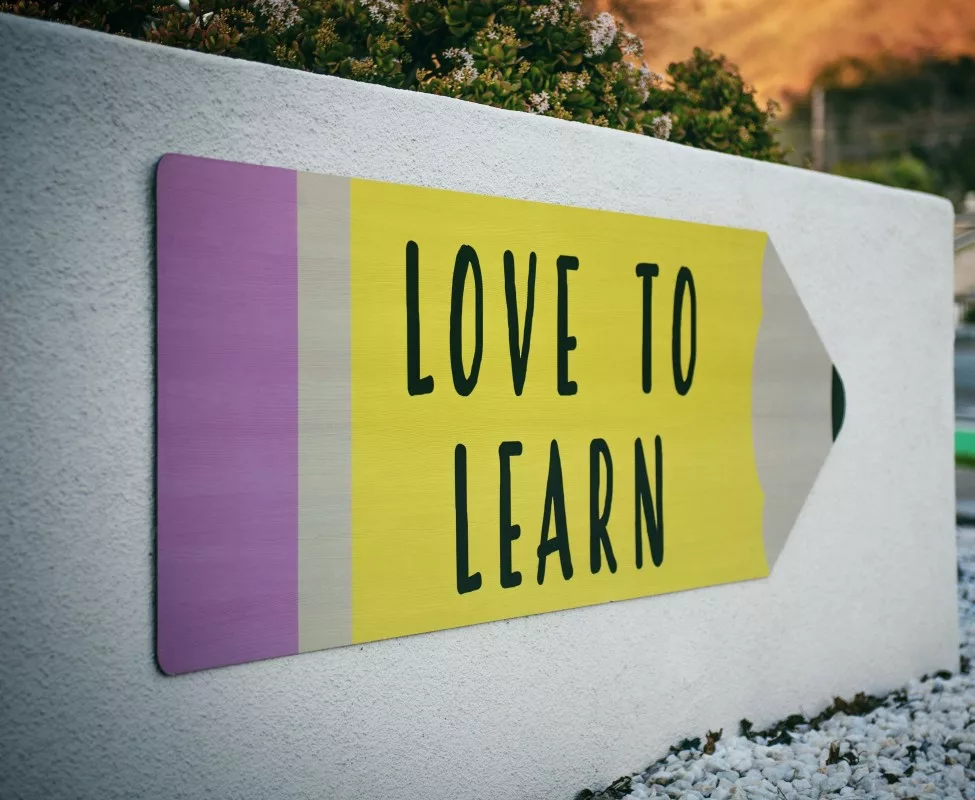
What’s in a word: Learning from the Master
This series on words is coming to end. However, we would be wise to never stop seeking to improve how we speak. As the Bible says:
“We all stumble in many ways. Anyone who is never at fault in what they say is perfect, able to keep their whole body in check.” (James 3:2)
Speaking without fault might seem impossible, but making small, consistent improvements is manageable, especially if we have help. Often the best way to improve at anything, is to find a good teacher to learn from.
So is there an expert we can study? Or better yet, is there a master of speech willing to take the time to teach us?
When we think about speaking well, our minds might go to some of the great historical speeches. Men like Martin Luther King, Winston Churchill, and J.F Kennedy, had great skill in putting together words that motivated and inspired thousands.
We can study their speeches and read books about them. In doing so, we will likely learn many useful things, especially if we want to improve our public speaking. However, it might not translate to an improvement in the things we say, day-to-day, to our friends, family, and acquaintances. Equally, we can never sit and have a conversation with or be taught by them. Even if they were still alive today, only a very limited number of people would get the chance to meet them, and fewer still, the chance to spend quality time with them.
However, there is someone else who we can all learn from. Someone whose words were arguably more powerful than anyone else’s ever have been or will be.
It was said of this person “No one ever spoke the way this man does.” (John 7:46)
The people who said this, were supposed to arrest the man of whom they spoke. However, they were so impressed by the words that came from his mouth, that they went back to their leaders empty handed. Their only excuse for not carrying out the arrest was that one explanation.
We don’t have to simply accept the officers’ evaluation of how this man spoke. We can study his words for ourselves.
Like the great speech writers of the past, we can also study how this man spoke publicly, by reading what he taught to large groups of people. (Matthew 5:43-46)
Yet we can also see how he spoke in the intimacy of a small group of close friends (Luke 22:19-20). Or how he spoke to his mother (John 19: 26-27)
We can read how he spoke wisely to the most intelligent of men, who tried to catch him out with his speech (Mark 12:15-17). Or how, through simply confessing ‘I am he’, he sent a whole multitude of armed men falling backwards (John 18:4-6).
We can read how he spoke to the wind and waves (Mark 4:39), to the dead (John 11:43-44), and to his own father, God (Luke 22:42).
He always spoke the truth, and he always said only that which he knew would please God.
However, despite how important this man is (Revelation 19:16), even though his speech was perfect in all situations (1 Peter 2:22), and his abilities far exceed anyone we know of, he is not too important, or too busy, for us.
We can sit with him, each day, and learn from him directly. We can ask him questions and be guided by him in our own speech by the power of his Spirit working in us.
Not only can we study the works he has already done, but we can also watch as he continues to work through his people. I would say that the best education in the world is watching this man – Jesus – at work.
Medieval Studies
For the last year, we have been learning about medieval history. Our curriculum took us all around the world, from the Benin Empire in medieval Africa, to the totem poles of native American tribes.
Though, we have, of course, spent a fair amount of time learning about the UK in the Middle Ages too.
Our main curriculum ‘Layers of Learning’ included some lovely activities and printouts, like this fun game and felt peg models.
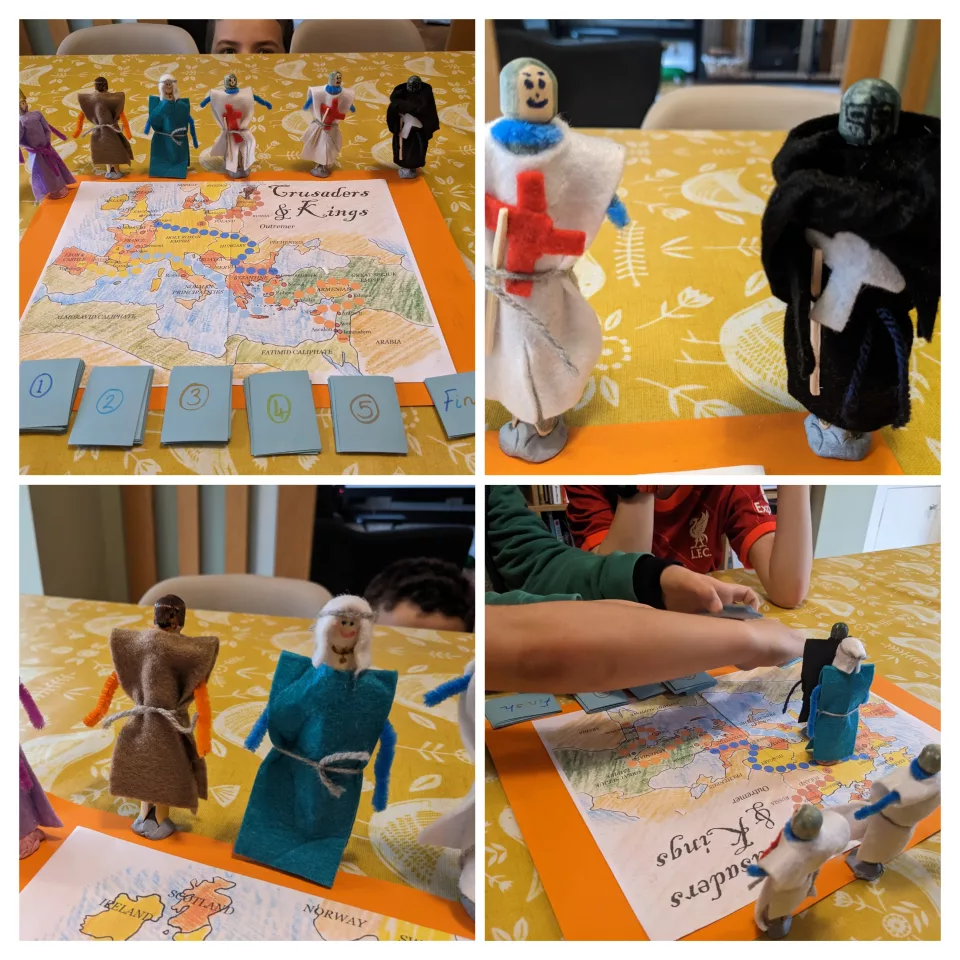
However I also like to use other resource banks to get additional inspiration and ideas.
Twinkl have some helpful history books and activities which can be printed, although my favourite place for this topic was the Scholastic Resource bank.
They have an interactive tour of a castle which you can explore online, traditional medieval music, and a dance from the Middle Ages. They also have a pdf called ‘The Lords Feast’ which is packed full of fun things to do.
After reading the invite for the Lord John of Warwick’s feast, we started to prepare our costumes, using ideas from the downloadable pdf.
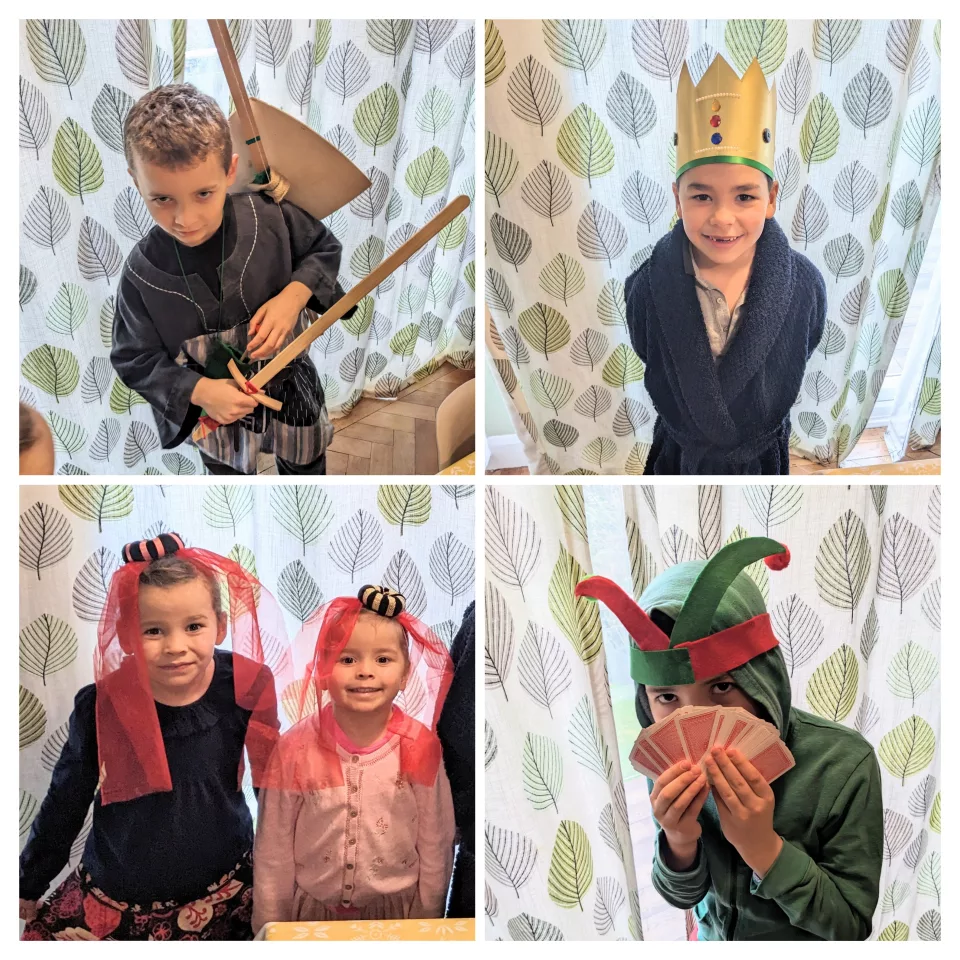
Then we watched some re-enactments of jousting competitions, before having our own ones, with horses and spears we crafted from card.

Next, we prepared a feast of onion cheese tart and spiced poached pears, from recipes in the pdf. (The drinks are apple juice and grape juice – in case there was some concern!)
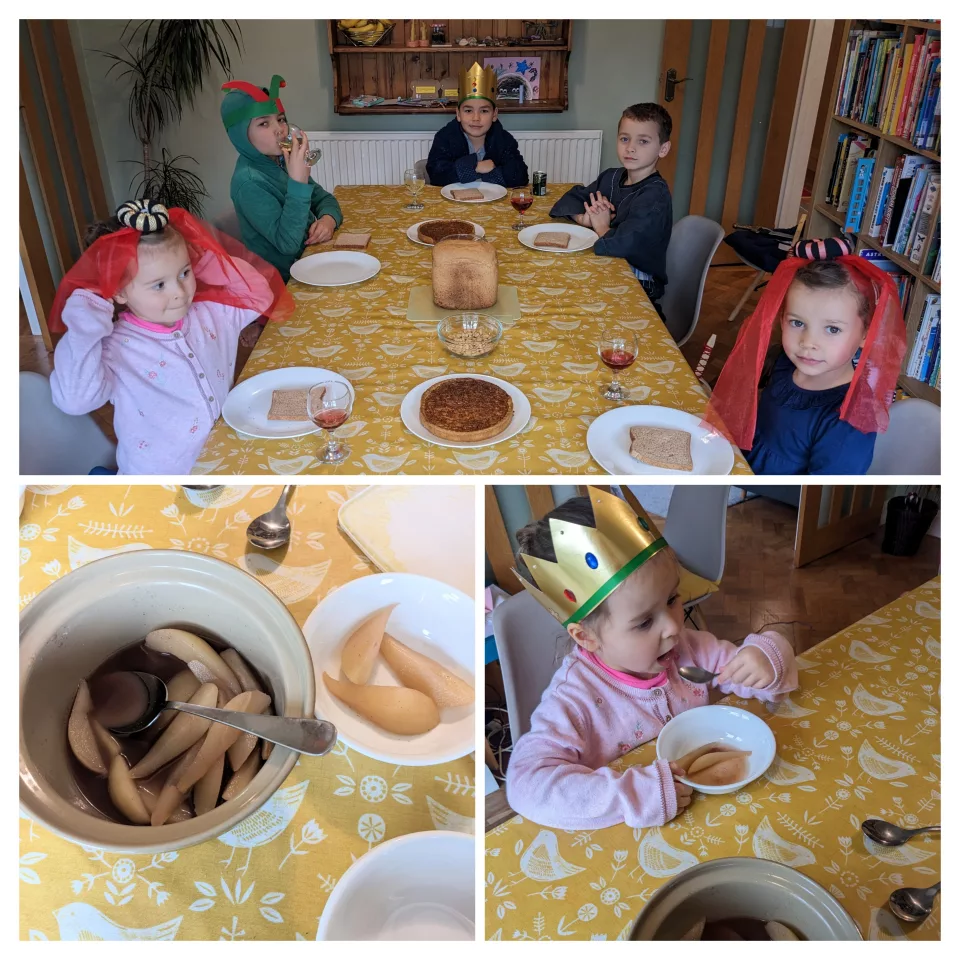
After our feast, our jester told us some riddles and jokes (also from the pdf printout), and then we all performed the dance we had learnt.
As Wales has a lot of rich medieval history to be discovered, we also went on a number of field trips, to different castles and the Newport Medieval Ship Museum. Our tour of the museum was fantastic, we got to see history being preserved before our eyes. I would highly recommend it, and it is free (as are Cadw sites for home educators).
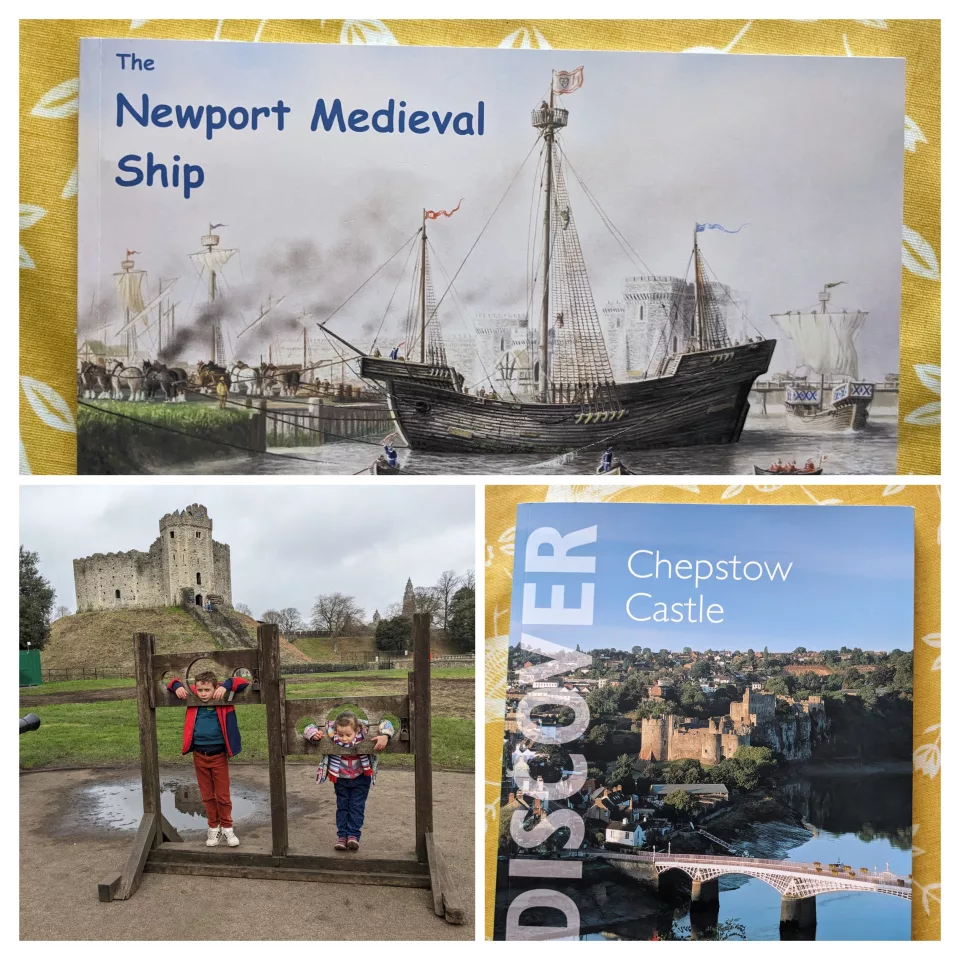
Perhaps our favourite field trip though, was at the end of the academic year, when we had the opportunity to visit Living History at Bullace Hill, where the medieval times were truly brought to life for us by a wonderful group of volunteers. They literally spent the week living as though they were in the Middle Ages. During our tour, we got to watch them dye clothes, use gunpowder, make black pudding sausages and all sorts of other fun and engaging activities, some of which the kids got to have a go at.
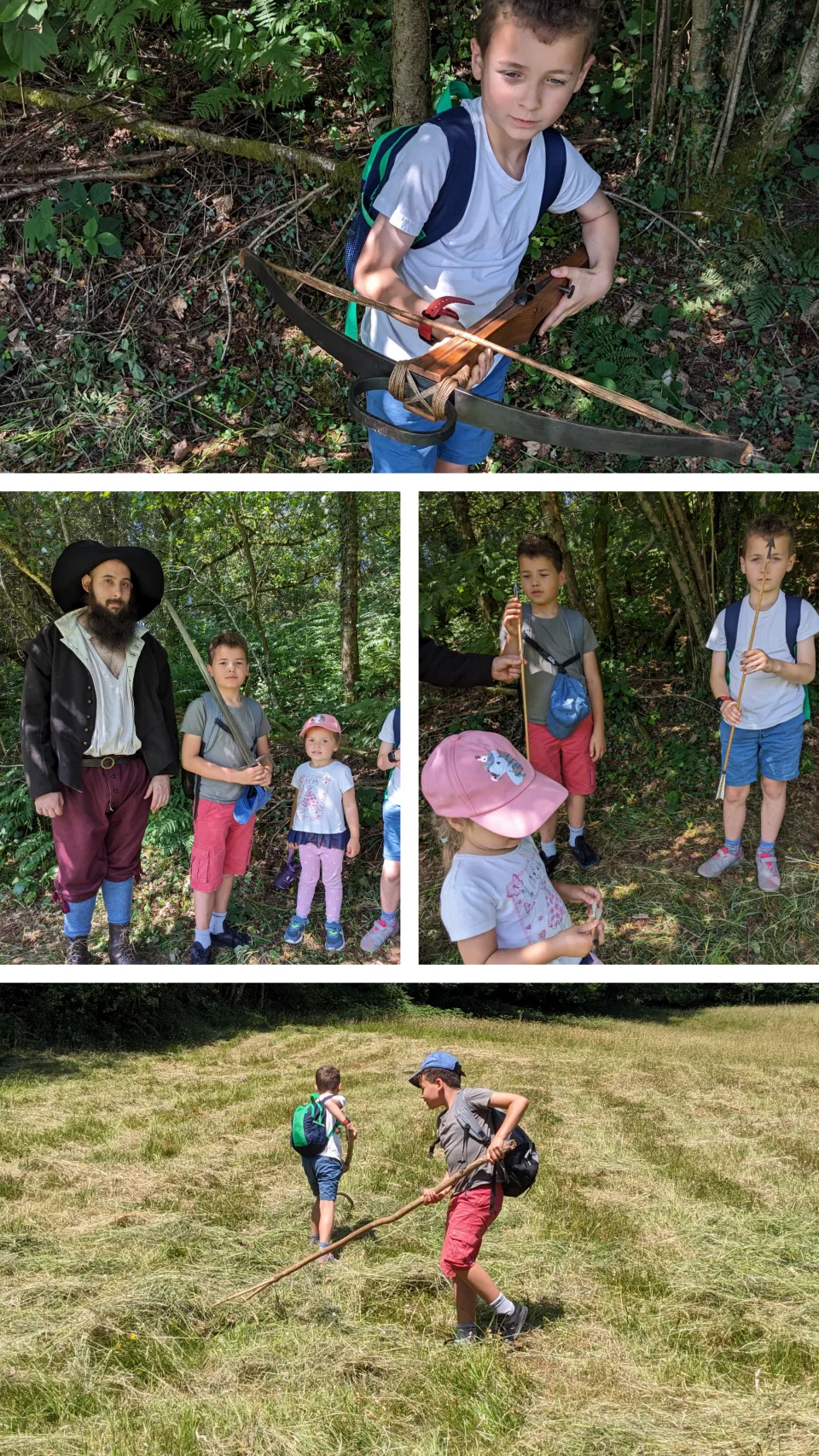
The children got to watch experts at work and ask questions. It was a great educational experience for which we are very grateful. So grateful in fact, the children all wrote thank you letters!
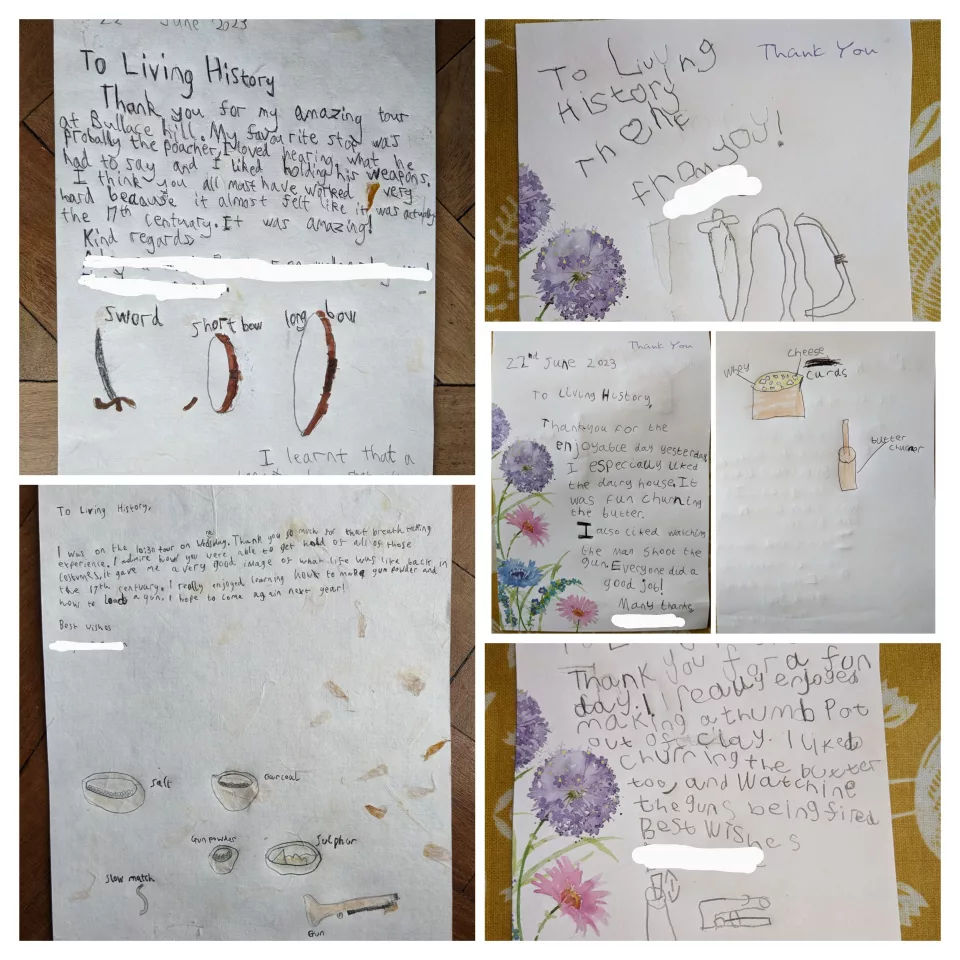
For more medieval inspiration, check out our studies of the Legend of King Arthur here.
One Reply to “What’s in a word: Learning from the Master”
Absolutely wonderful, as usual! Fabulous, love it 🙂